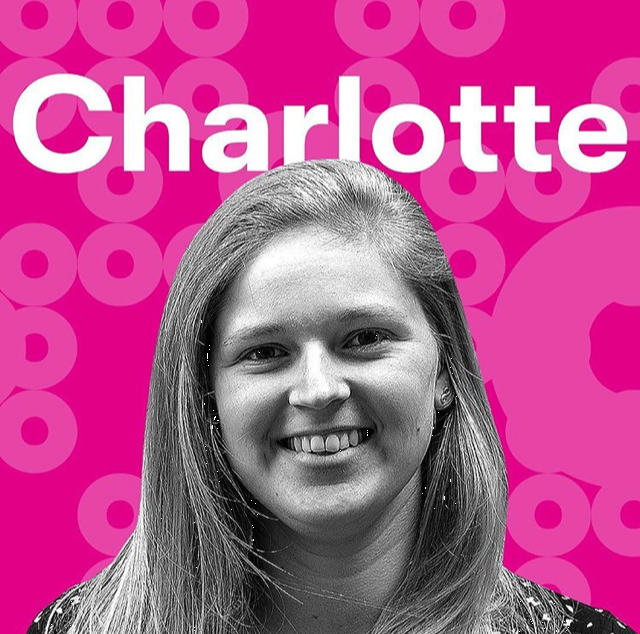I suffer from anorexia. I consider myself recovered, but it’s a life-long illness that I will always carry with me. And it’s one that raises its ugly head as soon as I get stressed.
I also work full time.
Juniors in agencies are expected to put in the hours and hustle through. Personally, I want to be as involved with as many things as I can. I want to learn and grow and contribute to cultivating a great work environment. For this reason, I sometimes push through and ignore the signs telling me to stay on balance. The fallout means that most of my weekends are spent sleeping, resting and recovering from the havoc I’ve wreaked during the week – all in order to get up and go again on Monday.
With many mental illnesses, it’s not just any one thing at a time; it’s the internal battle you face every day to get up and out, to function as a normal human being, doing the best you can while pretending everything is alright. It’s like living on a balancing beam.
Breaking the stigma
The stigma of mental illness deters people from sharing what they are going through with colleagues at work. We don’t want people to think we can’t cope with extra responsibility, or to not be picked for this opportunity or that promotion. The burden of the stigma alone create a whole extra load to carry.
I was lucky when I was first diagnosed; I was still in university and had a lot of free time to put towards recovery. Going through intensive therapy, I needed days to rest – physically and mentally. Pushing myself in recovery was draining.
Having a mental illness in an agency environment means you can’t always stay late on pitch planning, because you need to sleep. You can’t just stay late unexpectedly because you planned to go home; changing plans is extremely nerve-racking. You can’t just order food in, because you didn’t plan on having a takeaway. It heightens your struggle when things get heated, because maintaining a balance already put so much pressure on yourself – you have to be in it to win it while also being vigilant about prioritising your health.
Work/life balance is important for everyone, but for those coping with a mental illness it can be the difference between thriving or ending up in hospital. Ignoring mental health in agencies inevitably produces less productive employees, more conflict and a higher employee turnover. The cost to business of absenteeism due to mental health illness is estimated at £35bn in the UK alone.
So what can be done?
Culture
Workplaces need to have an open culture where they talk about and consider mental health in the same light as physical health. It shouldn’t be treated any differently if you are unwell. I am lucky enough to work in a place where we have access to Sanctus, a partner of Rapp that comes in and allows you to speak safely and openly about any issues you are facing. I’ve found the sessions very helpful in giving me perspective and support in the middle of my day to talk about whatever is going on in my home and work life. We also have managers who are trained mental health first aiders, whom we can always reach out to when needed.
Educate
We also need to put raising awareness and education at the top of the agenda. Educate, educate, educate. Feeling supported in sharing my condition with those sitting around me helps to mitigate the constant chatter about the gym and calorie-counting. It also certainly gets people to think twice before calling me lazy for leaving at 5.30 or boring for not going to drinks.
Flexible working
Flexible working is helpful for numerous reasons. It helps recovery after particularly intense therapy sessions and provides relief from environments and situations that can be triggering. For example, sometimes getting dressed for work is the hardest thing I can do and being able to stay in comfortable pyjamas reduces my stress and anxiety significantly. Some days if I’m feeling panicky, getting on a Tube in rush hour raises that stress and can create a panic attack. A simple solution is to come into work at different times. Also, who doesn’t want to throw in a couple of loads of laundry between calls? It frees me up earlier to get outside on a walk with my dog – getting fresh air and a little light exercise to keep feel-good endorphins going.
Ultimately, your health is always more important than your job, but staff need the support of their organisations to provide relief from the fallout of over-demanding work.
It should be OK to clock out (and I mean clock out) at 5.30. This shouldn’t necessarily come from top down; colleagues should urge and support you to do so. Taking a mental health day, or a sick day for your mental well-being, should be supported, while working from home once in a while should be a given. Give yourself the time you need to thrive. Share, talk and educate.
Charlotte Schreurs is currently Senior Manager, OMD Create. This article was originally published December 13, 2018 when Charlotte was an Account Manager at Rapp UK.
